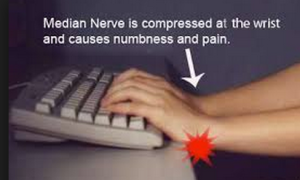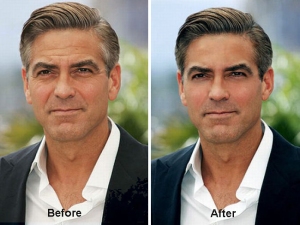After reading many articles that said MOOCs (massive open online courses) are being used for both high school courses, university course, and university degrees, I began to think of MOOCs like fast food. To begin with everyone can afford them. Next, it sounds very promising and delicious because of the hunger for accessible education. Most importantly, just like fast food, too much of it is not healthy. You might be wondering how can MOOCs be unhealthy? Well, I will tell you.
1. What is so wrong with repeatedly having adolescents or adults in front of a computer with full internet access for long hours? >>>Overuse of computers can cause Neurological damage to the brain, damage the eyes, and result in internet addiction.
2. What happens when we choose to test the academic knowledge of students online without any supervision? >>>Academic misconduct happens.
3. What happens when a student becomes so bored with their studies that they decide to check their Facebook for only two minutes, and that two minutes end up turning into 2 hours? >>> MOOCs students will need access to a computer and internet. This will allow them to have access to unlimited Distractions, resulting in the neglect of their studies.
We have to take these concerns seriously because we are imperfect humans. Were not going to evolve into perfect studious individuals, or ergonomic individuals to accommodate our new learning environment. Therefore we have to question MOOCs, because at the end of the day, us and our children will be the ones affected by them.
So, are MOOCs as good as they seem, or will they just raise a generation of students who have no skills because they got through school by cheating. Even worse will the student of the future develop health problems related to too much computer use.
Am I Overreacting???
Nope!! MOOCs are growing every year. Venture capitalists invest into firms that offer MOOCs. They invested $600 million in 2012, and $21.1 million in 2013. Harvard and Massachusetts Institute of Technology (MIT) invested $60 million into launching their own MOOCs provider, edX. The largest provider of MOOCs, Coursera, hired the former president of Yale as it’s CEO.
MOOCs are growing so fast that traditional universities feel threatened by them, and as a result offer their own courses through MOOCs. Some universities have started offering degrees through MOOCs. They are Antioch University, which is offers a blended Bachelor’s degree, and Georgia Tech which is offering a Masters in Computer Science. On the other hand, the student themselves are trying to earn degrees by taking the courses needed for that degree.
Universities in Finland, India, Canada, France, Ireland, and U.K. are offering MOOCs. World wide MOOCs consists of more than 1200 courses, 10 million students, and more than 1300 instructors.
So What?
In the future it is inevitable that MOOCs will function just like regular universities, and therefore offer more degrees. When the time for that comes, there will be issues with academic misconduct, internet addiction, internet distractions, and of course damage to both the eyes and the brain due to the overuse of computers. I have hyperlinked many articles in the introduction of this blog that explains how too much computer usage can harm individuals. Some of the health hazards include:
- Nerve damage –Peripheral Neuropathy in particular carpal tunnel syndrome that results from the constant usage of the hands and wrists
2. Computer Vision Syndrome due to the lengthy stares at the computer screen
3. For high school students overuse of the internet causes atrophy of the grey matter in the brain. This causes concentration and memory complications.
4. For everyone else too much internet use can damage the structure of the brain
As for MOOCs computers causing distraction and internet addiction, Dr. Kimberly Young, who is the executive director for the center for online addiction, says Internet addiction amongst students occur when the following nine conditions are available:
- Unlimited internet access
- Free unregulated time
- Lack of supervision
- No restrictions on the students’ online activity
- Professors Advising students to use the resources available on the internet
- Previous addiction to entertainment such as video games
- The need to escape the stress of studies
- The lack of friends to socialize with offline
- High drinking age in society, therefore drinking is replaced by internet use.
As can be seen MOOCs are the breeding for the above nine conditions. Internet addiction will cause students to neglect their studies, and personal and family life . Then, the feelings of guilt and lack of success in their lives will cause the students to fall into depression.

Cheating?
Currently MOOCs students cheat on their school work. Nothing major is being done to stop them. Even though Coursera is making students take a pledge that they will not cheat, students still cheat. It is very easy to cheat on online courses. We already know that for online courses, student can write the midterm with a group of other students, and share the midterm questions with one another. Likewise if students have the old midterm, and the old midterm is the same as the current midterm, they can just copy out the answers from the old midterm. Even worse they can get someone else to the course for them in their name. This may get the student a good mark but at the end of the day they will not learn anything.
What is the solution?
As mentioned above humanity is not going to evolve into creatures that will be immune to all the hazards of over internet use; nor will they become fully ethical individual, and stop cheating.
All the material for MOOCs are online. The only way to avoid the above conflicts with computer use, is to provide the students with physical textbooks, notes, and exam them in a supervised environment. This seems very unlikely since this will add to the cost of running the MOOCs. Ergonomic computers, and software that monitors and controls the internet use of students can also be considered, but this again will add to the costs of using and operating MOOCs. This cost might be transferred to students. The cost maybe minimal for first world students, but it will be too much for students in developing nations. MOST UNFORTUNATELY, students will find a way around the software.
So are MOOCs really worth the risks they come with? I say YES for developing countries since they really need it. But with caution for first world countries. First world countries already suffer from many issues with their computer usage. It is not necessary to amplify those issues. What do you think????







